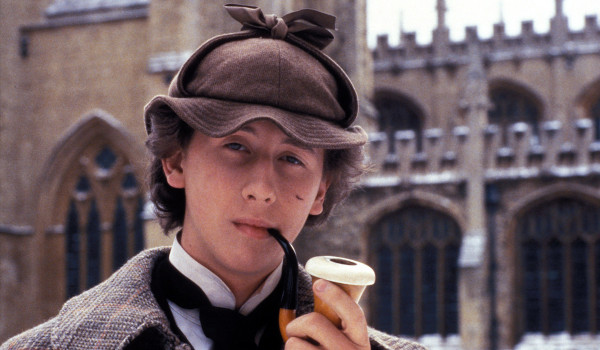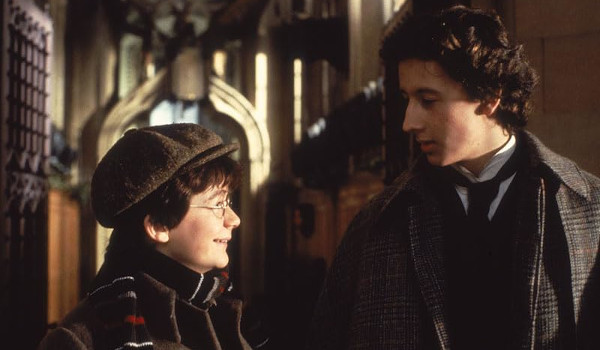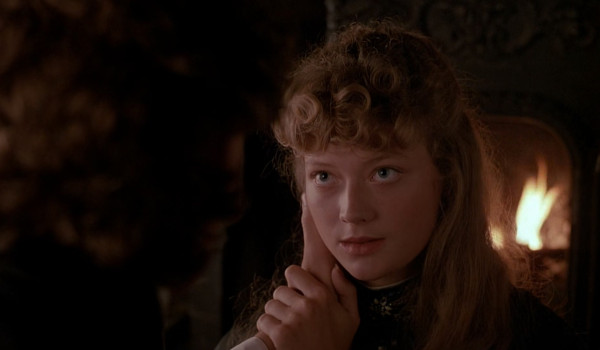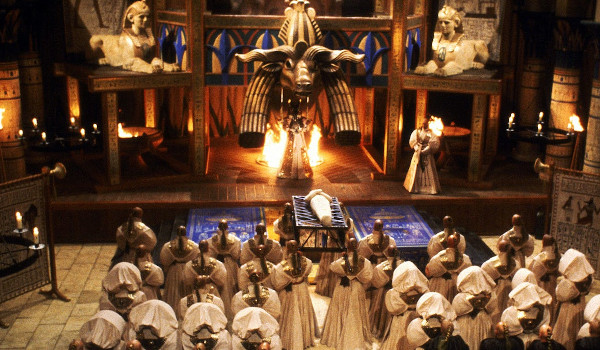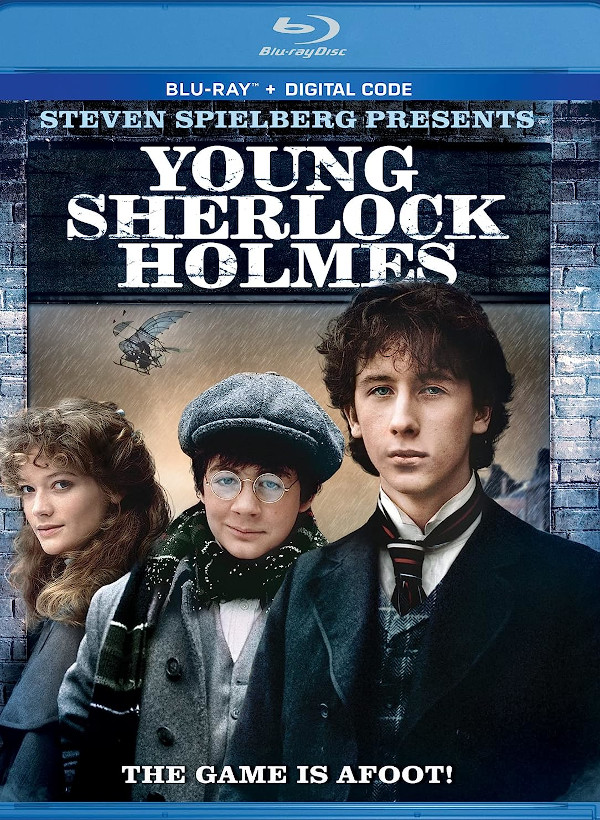- Title: Young Sherlock Holmes
- IMDb: link

“In my entire life, I have only seen Holmes cry on two occasions.”
Released in 1985 to critical, but not box office, success, director Barry Levinson‘s Young Sherlock Holmes reimagined the first meeting of Sherlock Holmes (Nicholas Rowe) and John Watson (Alan Cox) as teens rather than adults when Watson transfers to London’s Brompton Academy and quickly befriends the genius but brash Holmes whose actions gets himself, and Watson, into trouble.
Along with being notable for playing with the Holmes and Watson dynamic, the movie also provides several murders whose victims go mad after being poisoned by hallucinatory thorns which drive the victims mad. The mystery of the deaths will be one of the major points of the movie while also offering school trouble for Holmes who at one point faces expulsion, a love interest (Sophie Ward) which will end in tragedy, and the introduction to his most famous enemy who begins as one of Holmes’ instructors (Anthony Higgins).
After giving us, and Watson, examples of Holmes’ ingenuity including a contest arranged by a school rival (Earl Rhodes) which only furthers the animosity between the pair, Holmes, Watson, and Elizabeth (Ward) get pulled into the series of murders which Holmes believes are connected, even if he can’t convince Det. Sgt. Lestrade (Roger Ashton-Griffiths) to take the unrelated incidents seriously. Despite his expulsion, Holmes cannot abandon the case after someone close to them (Nigel Stock) becomes the latest victim leading to the discovery of an Egyptian cult and a vengeful quest for revenge.
The special effects of the hallucinations work to explain each victim’s madness and most hold up fairly well, although some of the early CGI effects have aged better than others. Along with trips around London, and a creepy night in the London Cemetery where our drugged protagonists encounter the effects of the thorns themselves, we also get an elaborate pyramid under the streets of London where the cult performs sacrifices to Osiris which offers and odd mix of both creepy and goofy that ultimately pays off when the stakes are raised to life and death for Holmes and his friends.
Written by Christopher Columbus, the film’s script examined why Holmes was so cold and calculating in Doyle’s stories. The film offers a much more carefree version of the character in his youth who is forever changed by the events of the film. Producer Steven Spielberg also insisted on making sure the story fit the era calling on experts of both the time period and Sherlockian lore to offer notes on the script. The result is fun period mystery that winds around Sherlock’s London leading to both glory and tragedy for the young Mr. Holmes.
Watch the trailer